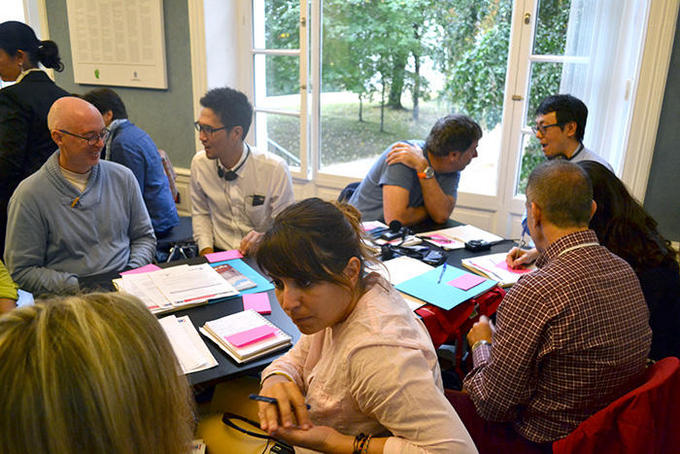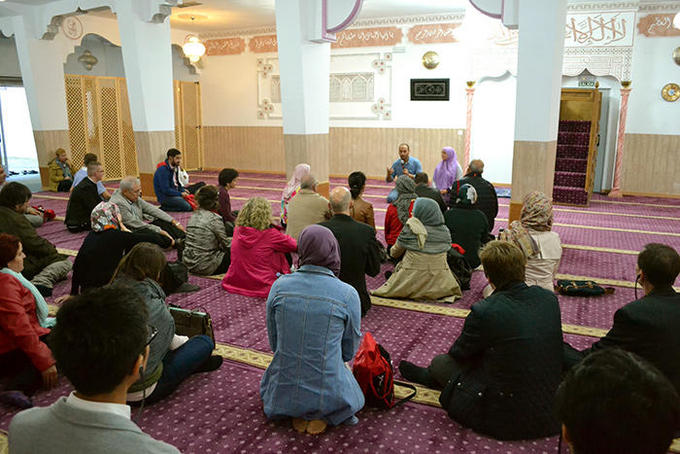Lessons to Learn from European Initiatives for "Religious Minorities"
Norihito Takahashi (Faculty of Sociology, Toyo University)
Hirofumi Okai (Faculty of Human Sciences, Waseda University)
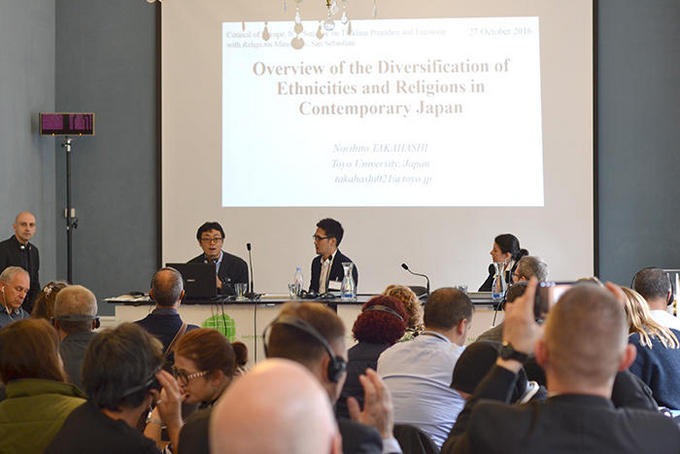
Presentation regarding foreign residents in Japan and their religious situations
Against the backdrop of ongoing conflicts in the Middle East, the world is still unable to cope with the issue of refugees crossing national borders to flee the horrors of war. At the same time, however, the threat of terrorism in Europe is still real and present. This issue is further complicated by problems related to religion and Islam in particular. For Europeans, these problems are more pressing than what people living in Japan imagine. We came to realize this through our participation in a seminar organized by the Council of Europe under its Intercultural Cities programme, "Tackling Prejudice and Engaging with Religious Minorities."
Seminar held in San Sebastián
The seminar was held in San Sebastián, one of Spain's most scenic resorts and a popular gourmet town. Over a period of two days, the participants in the seminar delivered case study reports from their respective regions and took part in group discussions. In the afternoon of the second day, we visited a local mosque. The seminar had a full lineup of activities. Most of the participants came from European cities, but there were also delegations from Morocco and Canada, in addition to our pair from Japan. The participants consisted mainly of staff of social organizations and departments at local authorities, working in the field that we in Japan refer to as multicultural coexistence, and religious people.
The major objective of the seminar was to engage the participants in discussions and exchange ideas based on their respective experience in order to come up with effective approaches for tackling prejudice and discrimination against religious minorities. We delivered a presentation on foreign residents in Japan and their religious situations, and described case studies of Muslim residents in Japan.
Tackling prejudice and discrimination against religious minorities
In the discussions, the participants reported cases of discrimination, violence and hate speeches in politics, media, and everyday life. It was taken seriously that religion, and the situation surrounding Islam in particular, has been one of the reasons for the discrimination.
The participants discussed the establishment of legislation and support systems to identify and sufficiently respond to prejudice and discrimination, and shared numerous ideas on ways to promote mutual understanding. With regard to promotion of mutual understanding in particular, the participants highlighted the importance of establishing of connections among people. Their reports featured numerous ideas on how to adequately capture the voices of minorities, establish connections among people with different values, and advance mutual understanding. The ideas include creation of places that can be used by people of all religions, visits to religious facilities, and holding of interfaith dialogues.
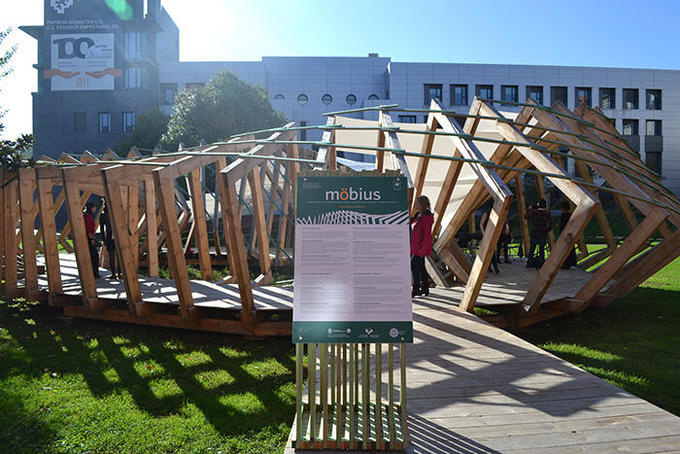
The multi-religion center Möbius in San Sebastián. The structure, which could be used by people of all religions, will be preserved until the end of 2017.
What impressed us most was the initiatives to train staff of local authorities and religious leaders in order for them to serve as bridges between religious minorities and their host societies.
It is possible that the Western values on which the host societies are founded may come into a direct conflict with the norms and practices of the religious minorities, and the lack of common grounds between them may develop misunderstandings and prejudice. Against this backdrop, they need people capable of understanding the values and mentality of both sides and explaining and negotiating in a compassionate manner.
Lessons learned from the European case studies
As for Japan, the issue of religious discrimination is superseded by ethnic and racial discrimination against Korean residents and other minorities. So what can we learn from the European case studies? The theme of this seminar was religion, but all participants recognized the fact that religion is not the only factor that causes discrimination. There are various types of discrimination, including discrimination based on gender or occupation, and they are intertwined with other issues. For instance, it is impossible to consider religious discrimination separately from contiguous problems such as social and economic inequality. This highlights the importance of initiatives for promoting correct awareness of these problems. As specific measures in this direction, in Europe various initiatives are advanced through the continuous collaborative efforts of people in various positions. Naturally, these initiatives face concerns regarding possible pressure for assimilation into the host society or questions regarding the response to xenophobia and extremisms. This seminar, however, was not the end goal. On the contrary, going forward, the ideas that the participants shared should be transformed into new improvements and initiatives in each region. The participation in this seminar and the opportunity to share such ideas was an extremely valuable experience for us.
Finally, we would like to express our deepest gratitude to the Japan Foundation for providing us with this precious opportunity.
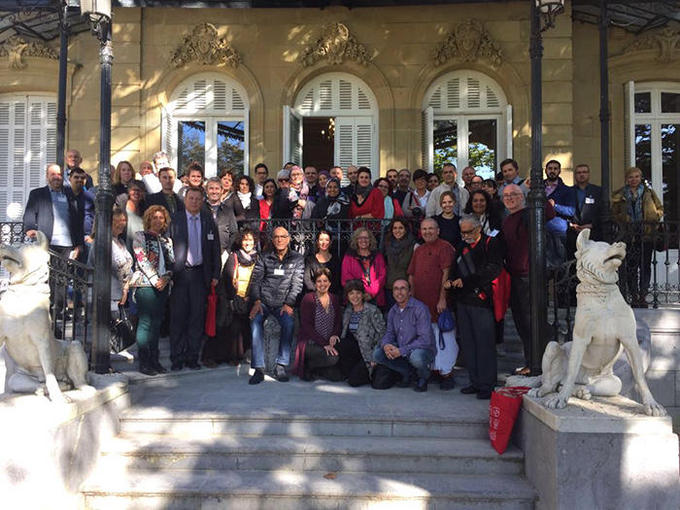
Group photo of the participants in the seminar
■Report of the Seminar created by the Council of Europe (English)
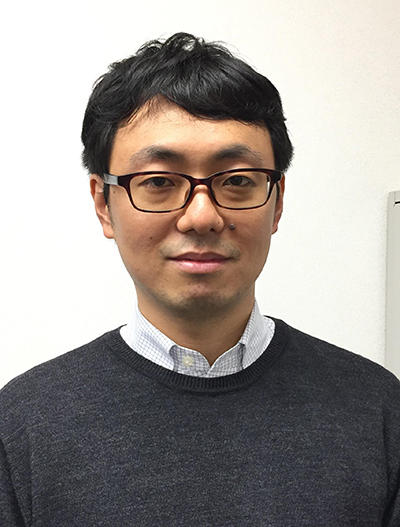 Norihito Takahashi
Norihito Takahashi
Norihito Takahashi is an associate professor, specialized in sociology of religion, at the Faculty of Sociology, Toyo University. His research is focused on the relationship between religions and migrants/refugees. His publications include Imin, Shukyo, Kokoku [Immigrant, Religion, Homeland: Religious Experiences among Japanese-Americans in Modern and Contemporary Hawai'i] (Harvest-sha), and Shukyo to Shakai no Frontier (co-editor; Keiso Shobo).
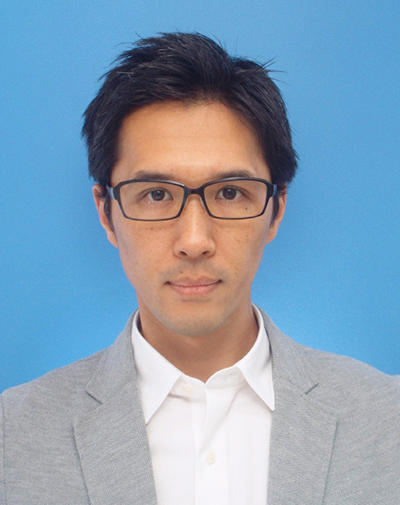 Hirofumi Okai
Hirofumi Okai
Hirofumi Okai is a research associate, specialized in migration studies, at the Faculty of Human Sciences, Waseda University. His research activities were inspired by interest in the life of Muslims in Japan and their interaction with local communities. He has co-authored Gendaijin no Kokusai Shakaigaku - Nyumon [Introduction to Transnational Sociology for Contemporaries: New Perspectives of Transnationalism] (Yuhikaku Publishing), Kokkyo wo Koeru - Tainichi Muslim Imin no Shakaigaku [Crossing Borders: Sociology of Muslim Migrants in Japan] (Seikyusha), and others.
Related Articles
Keywords
Back Issues
- 2025.6.24 Exclusive Interview:…
- 2025.5. 1 Ukrainian-Japanese I…
- 2024.11. 1 Placed together, we …
- 2024.5.24 The 50th Japan Found…
- 2024.5.24 The 50th Japan Found…
- 2024.5. 2 People-to-People Exc…
- 2024.2.19 Movie Theaters aroun…
- 2024.2.19 Movie Theaters aroun…
- 2023.4.24 The 49th Japan Found…
- 2022.10.24 Inner Diversity <2> …


